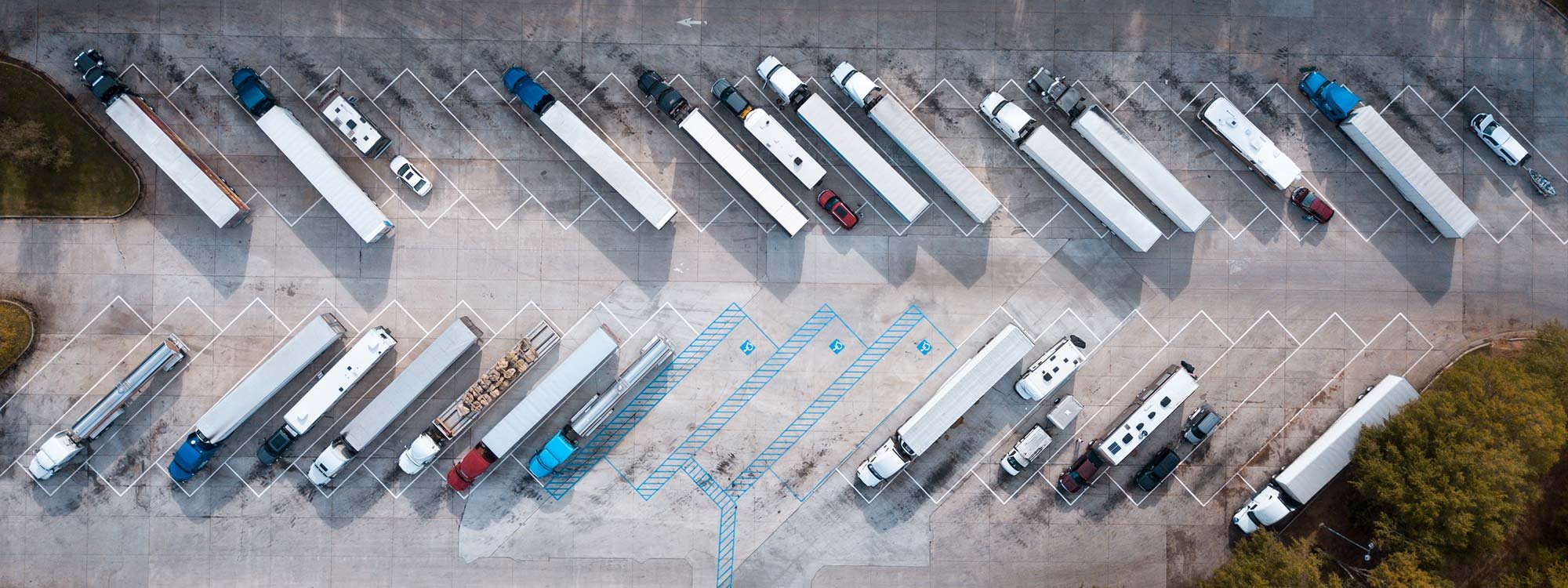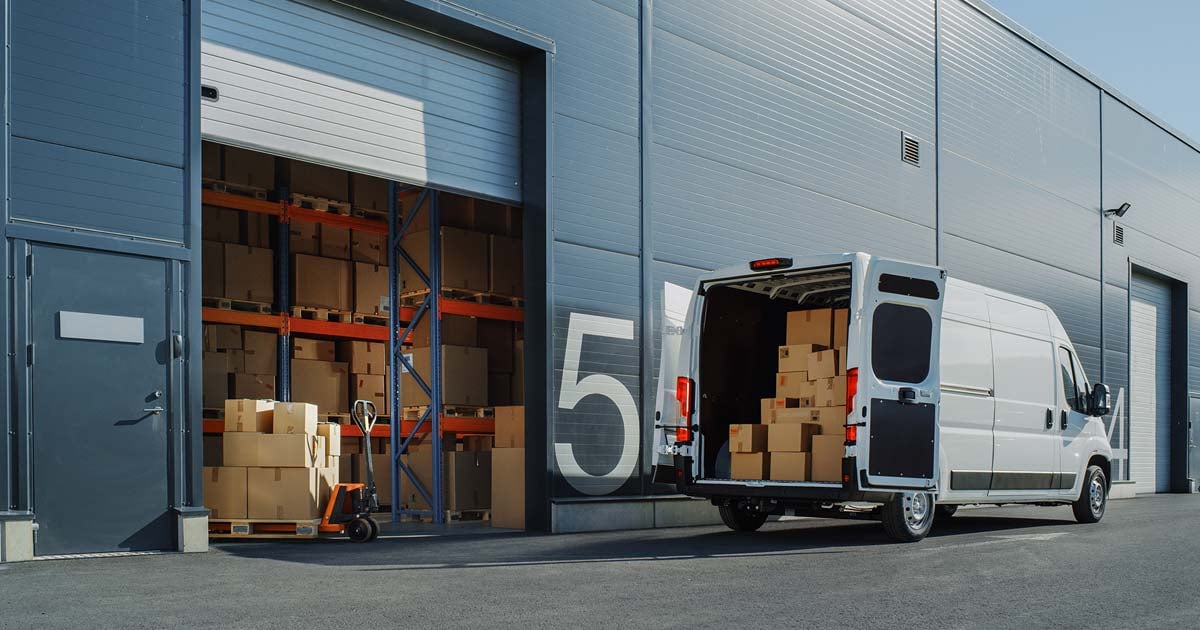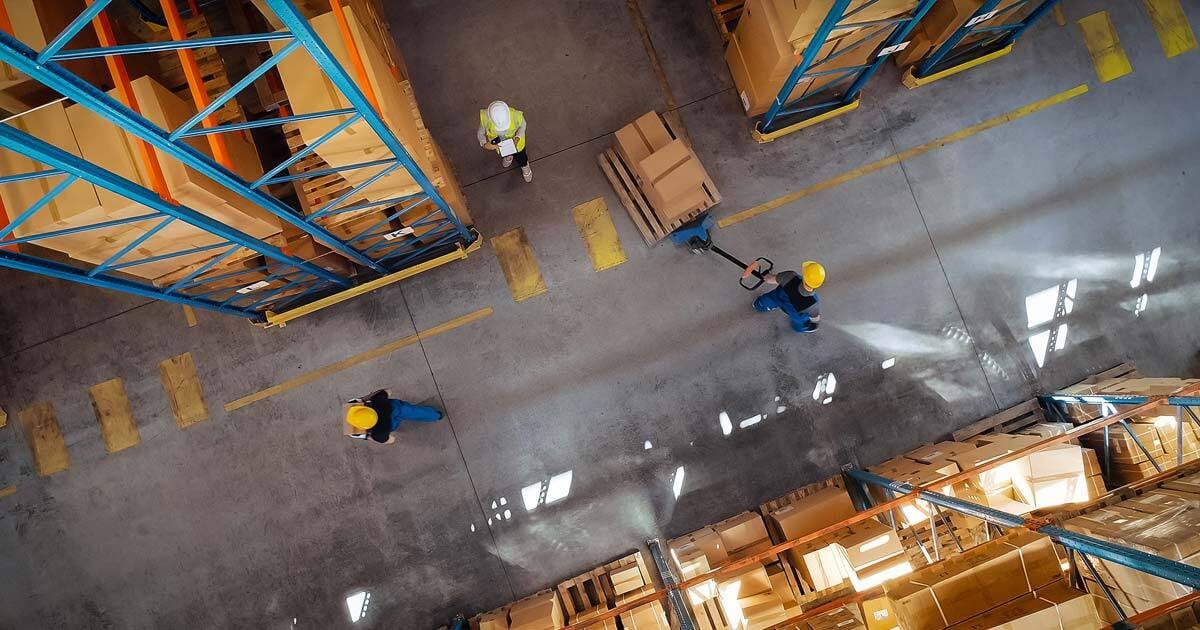Ensuring these goods reach their destinations efficiently is a complex task – one that logistics trucking companies specialize in. These firms help businesses coordinate shipments, manage transportation, and streamline the flow of products.
WHAT IS A LOGISTICS TRUCKING COMPANY?
A logistics trucking company is a third-party provider that coordinates the movement of goods by truck from origin to destination. In practice, these companies handle many supply chain tasks – from arranging transportation and managing fleets to warehousing and inventory management – with the goal of moving goods safely, on time, and cost-effectively. Logistics essentially refers to planning and coordinating this movement, which can include gathering shipping information, managing inventory, storing products, and transporting goods. A logistics trucking company can manage some or all of these steps on behalf of its clients, acting as an extension of the client’s supply chain team
TALK TO AN EXPEDITOR NOW
Get a Quote in Minutes for Your Time-Critical Freight Needs

Types of Logistics Trucking Companies
Most logistics trucking companies fall into one of a few categories. Many operate as third-party logistics providers (3PLs), offering a bundle of services (transportation, warehousing, fulfillment, etc.) and often owning assets like trucks or warehouses. Others function as freight brokers, who don’t own trucks but instead connect shippers to carrier companies from a large network of carriers. Freight brokers focus on arranging single shipments by finding the right carrier at the right price, whereas 3PL companies often handle a broader scope of ongoing logistics operations. In essence, whether acting as a broker or a full-service 3PL, a logistics trucking company serves as an expert intermediary that handles the trucking and related logistics so that the shipping process is efficient and worry-free for the customer.
It’s worth noting that “logistics” is just one part of the overall supply chain management process. Logistics typically focuses on the transportation and storage of goods, while supply chain management encompasses a wider range of activities (from sourcing raw materials to production to distribution). A logistics trucking company primarily sticks to what it does best – moving and warehousing goods – in support of the broader supply chain. By leveraging such a provider, businesses can tap into specialized expertise in freight transportation and ensure their products get where they need to go efficiently.
Advantages of Hiring a Logistics Trucking Company
For businesses of all sizes, partnering with a reputable logistics trucking company can offer numerous benefits. Outsourcing logistics to a trusted provider allows companies to focus on their core operations while experts handle the transportation details.
The rise of e-commerce and same-day delivery expectations are placing added pressure on logistics providers to adapt quickly and deliver at speed. As a result, logistics trucking companies are investing in automation, predictive analytics, and strategic partnerships to stay competitive and future-ready in an ever-changing market landscape.

Expedited Freight Efficiency
Logistics trucking companies can often provide more cost-effective transportation services. Thanks to extensive carrier networks and higher buying power, they negotiate better freight rates and optimize loads to reduce empty space. Businesses also save by not having to invest in their own trucking fleet, drivers, or warehouses, since the logistics provider already has those resources in place.
Furthermore, logistics providers offer scalability that many businesses can't achieve in-house. Whether you're dealing with seasonal demand spikes, expanding into new markets, or navigating a supply chain disruption, a logistics trucking company can flexibly scale resources to meet shifting needs. This agility not only improves service reliability but also supports long-term growth by allowing companies to respond quickly to market opportunities without the burden of managing complex logistics infrastructure themselves.

Streamlined Operations
By coordinating all the moving pieces of shipping – from scheduling pickups to managing paperwork – the provider ensures a smooth, streamlined process for deliveries. Clients benefit from end-to-end oversight of shipments, meaning products get delivered on time with fewer logistical headaches. The logistics company’s systems and expertise keep the supply chain running like a well-oiled machine.
This level of coordination also enhances communication and visibility throughout the shipping process. Most logistics trucking companies use advanced transportation management systems (TMS) that provide real-time tracking, automated notifications, and centralized documentation. Shippers can monitor their freight status at any time, quickly identify potential issues, and access digital records for auditing or customer service purposes. This transparency builds trust and allows businesses to make more informed decisions regarding inventory and distribution.

Focus on Core Business
Handing off transportation tasks allows a company’s staff to devote more time to their primary business activities (sales, product development, customer service, etc.) instead of managing truck schedules and freight issues. The logistics firm handles routing, tracking, and problem-solving, freeing up the client’s time and personnel. This resourceful use of operations means businesses can be more productive in their specialties while logistics experts take care of deliveries.
Outsourcing to a logistics trucking company also reduces administrative burdens that come with shipping—such as carrier negotiations, claims processing, freight audits, and compliance paperwork. These time-consuming tasks are handled by professionals who specialize in navigating the complexities of transportation regulations, accessorial charges, and documentation requirements. This reduces the likelihood of costly errors and ensures that freight moves efficiently and legally across state lines or through distribution hubs.

Logistics Industry Expertise
Established logistics trucking companies bring deep industry knowledge and experience to the table. They can anticipate common shipping issues, navigate complex regulations, and quickly resolve problems that arise in transit. With a vast carrier network and seasoned staff, a good logistics provider offers valuable expertise – essentially becoming a partner who can troubleshoot delays, ensure compliance, and adapt to unforeseen events. This level of know-how and contingency planning can greatly improve reliability in your supply chain.
Their experience also enables them to proactively optimize shipping strategies rather than simply reacting to challenges. For instance, an experienced logistics trucking company can analyze past shipment data to recommend more efficient routes, identify opportunities for freight consolidation, or adjust modes of transport to reduce costs and improve transit times. They stay current on industry developments—from regulatory changes like Hours of Service rules to technological advancements such as electronic logging devices (ELDs) and automation—so their clients don’t have to.

How to Choose the Right Logistics Trucking Company
- Industry Experience and Expertise
- Strong Customer Service and Communication
- Capacity and Network Coverage
- Reliability, Safety Record, and Reputation
- Use of Technology and Tracking
- Competitive Pricing and Financial Stability
Industry Experience and Expertise
Look for a provider with extensive experience in the transportation and logistics industry. A company that has been in business for many years (or has leadership with deep trucking knowledge) will understand the challenges of the market and know how to adapt to changing conditions. Seasoned logistics firms are better at problem-solving and can leverage their knowledge to improve your supply chain.
Strong Customer Service and Communication
Reliable communication is essential in logistics. You should be able to reach your provider easily and get clear updates on your shipments’ status. A strong commitment to customer service – such as offering a single point of contact, 24/7 support, and responsive issue resolution – is a good sign of a quality logistics partner. Choose a company known for keeping clients informed and addressing concerns promptly, so you’re never in the dark about your freight.
Capacity and Network Coverage
Ensure the logistics company can handle your specific freight volume and shipping lanes. The provider should have access to sufficient capacity in your lanes and markets, whether through their own fleet or a network of carrier partners. If you ship regionally or nationally, verify that the company has the carrier connections or fleet to cover those areas (including any cross-border or international capabilities needed). Sufficient capacity at competitive rates is key to avoiding disruptions.
Reliability, Safety Record, and Reputation
Research the company’s track record. A reputable logistics trucking company will have a history of on-time deliveries and satisfied customers. Check if they vet their carrier partners carefully and maintain high safety standards. For instance, top providers have strict criteria for the carriers they work with and ensure those carriers have the right equipment (such as refrigerated trucks for perishable goods or flatbeds for heavy loads). A solid reputation in the industry, demonstrated by references or reviews, indicates you can trust them with your freight.
Use of Technology and Tracking
In modern logistics, technology is a major differentiator. Look for providers that leverage advanced logistics technology – such as GPS tracking, transportation management systems, real-time shipment visibility tools, RFID for inventory, and data analytics. Extensive use of technology helps ensure efficiency and transparency. For example, a good logistics company will offer online tracking portals or automatic alerts so you can monitor shipments. Technology integration (like EDI or APIs with your systems) is also a plus for seamless information flow.
Competitive Pricing and Financial Stability
Cost is always a consideration. Obtain rate quotes and understand how the pricing works (e.g. contract rates vs. spot rates). While the lowest price isn’t always the best choice, you’ll want a company that offers competitive rates for the value provided. Equally important, make sure the provider is financially stable – a company that’s on solid financial footing is less likely to experience disruptions or go out of business unexpectedly. A financially sound partner can invest in quality staff and equipment, which in turn benefits you.
Common Challenges in Logistics Trucking
Despite its advantages, the logistics trucking sector faces a number of challenges and pain points. Both providers and their client shippers must navigate these hurdles to keep freight moving efficiently:
Rising Fuel and Operating Costs
Regulatory Compliance
Visibility and Communication
Driver Shortages and Scheduling
Safety and Security of Freight
Fleet Maintenance
Frequently Asked Questions
What is FTL shipping (Full Truckload) and when do I need a full truck?
What is the difference between LTL and FTL freight shipping?
What is a freight quote and how can I get one for my shipment?
What is a 3PL (third-party logistics) and how can it help with freight logistics?
What is expedited freight shipping and when should I use it?
What is final mile delivery in logistics?
What is flatbed trucking and what kinds of loads require a flatbed?
What is dry van trucking and what goods are shipped in dry vans?
What is dedicated trucking service?
What is freight logistics?
Related Blog Posts

Dedicated Freight
Dedicated freight is a trucking solution in which a carrier allocates a fixed fleet of trucks and drivers exclusively to a single shipper under a long-term agreement. In this model the carrier “dedicates” equipment and personnel to the customer’s lanes or regions on a multi-year contract.

Tesla, Navista Compete To Unveil The Leading Electric Trucks
Tesla has long billed itself as the leader in advanced and sustainable vehicles. But when it comes to electric trucks, the company is at risk of being upstaged.

Expedited Freight Quote
A freight quote is an estimate provided by a carrier or third-party logistics provider that outlines the cost of transporting goods from one location to another. It’s based on a variety of factors, including the weight and dimensions of the shipment, the distance between pickup and delivery locations, and the chosen method of transportation.

How to Find A Freight Broker Near Me
Freight brokerage—also called logistics brokerage or transportation brokerage—is the business of connecting companies that need to ship goods with the carriers that can transport them. A freight broker acts as an intermediary between shippers (the cargo owners) and freight service providers (usually trucking companies).

Obstacles & Opportunities: 5 Greatest Challenges In Expedited Trucking
Growing pains are a reality in every industry, and expedited freight is no exception. As the market evolves and public policy changes, trucking companies of all stripes must adapt or risk going out of business. The American Transport Research Institute (ATRI) recently published a report on the challenges that carriers must deal with going forward.
Air Cargo Charter
Air cargo charters are designed for flexibility and urgency, capable of mobilizing aircraft on short notice to meet tight deadlines or navigate around disruptions like natural disasters, supply chain bottlenecks, or geopolitical challenges.
THE RISE OF EXPEDITED FREIGHT JOBS
In today's fast-paced logistics world, getting things delivered on time is very important for both businesses and consumers. With the increasing demand for rapid delivery services, expedited freight has become an essential component of the supply chain.
Industries We Serve
Modern day hot shot trucking provides the speed and exclusivity you need to meet the most demanding and time-sensitive shipping requirements. We use every resource, avenue, and channel available to ship your freight by ground or air. Designed specifically to address supply and distribution problems that arise without warning, hotshot trucking tactics involve coordinating a network of carriers in a variety of locations. By calling on the vehicles closest to your supply or distribution points, hotshot brokers can fill any sudden gaps in your supply network almost as soon as they happen. This minimizes the disruption to your business and allows you to quickly return to ordinary operations, weathering the storm without skipping a beat.
Automotive
The automotive supply chain already has significant challenges. Don’t let malfunctioning equipment stop the production line. Step on the gas with HotShotTrucking.com’s suite of services that will get you back in the fast lane. With HotShotTrucking.com, companies are devising shipping strategies to swiftly deliver critical parts and equipment — whether it's ground expedite service with sprinter vans, box trucks and 53-foot tractor trailers or air freight and air cargo.
Aviation & Aerospace
Every moment a commercial airliner sits on the ground, it costs an airline money. Expedited freight services by HotShotTrucking.com can get you back in the air with prompt delivery of parts and equipment throughout North America. We are equipped with the expertise to navigate the complexities of shipping jet engines and other types of loads, and our network of hot shot drivers has extensive experience transporting aviation assets.
Construction
One shipping delay can snowball and cause delays throughout your entire project. You need an experienced 3PL provider who understands the construction industry and has the logistical reach to deliver your freight on time, anywhere. That 3PL partner is HotShotTrucking.com. Whether in the air or on the ground via truck and trailer, we can connect companies to expedited freight services for the prompt delivery of parts and equipment throughout North America.
Mining & Metals
From cranes to chemicals to excavators to conveyor belts, HotShotTrucking.com has the experience and industry know-how required for shipping sensitive, oversized, and hazardous equipment. Third-party hot shot trucking and logistics providers such as HotShotTrucking.com specialize in devising and implementing innovative shipping solutions, ensuring mines can swiftly return to operation. We’ll pick up your shipment, deliver it to the airport and receive it at the other end – providing hand-carried service as necessary or required.
Manufacturing
Every moment a manufacturing facility or factory sits idle costs a company money because of the high costs involved. With many manufacturers building to only just-in-time production rates, any disruption threatens parts and vehicle inventories. This is where the speed and expertise of freight services from HotShotTrucking.com can make a difference throughout the entire manufacturing supply chain. We do all the logistical legwork to find the optimal solution for your job, whether it's an exclusive air charter or expedited ground shipping.
Telecommunications
From servers to cell towers, information, voice, and data must flow to keep businesses, production, and the public online and connected. When equipment goes dark, depend on HotShotTrucking.com to get your systems flashing green again. This is where the speed and experience of trucking and freight services from HotShotTrucking.com can help. Our hot shot truck network excels at the prompt delivery of parts and equipment throughout North America.
Oil & Gas
The oil and gas industry faces challenging conditions in offshore and onshore oil rigs, often in remote locations with limited infrastructure. Don’t let oil pumps or pipelines sit idle waiting for equipment. By having the right plans, parts, people, and logistics partner like HotShotTrucking.com, you can effectively mitigate plant or pump downtime, unscheduled disruptions, and equipment failures.
Cost of Urgent Shipping
Which of our specialized shipping services best fits your needs?
Blog and Resource Center
How AirFreight.com Solved a PGA Tour Shipping Emergency
Learn how AirFreight.com located a lost shipment and helped save the PGA Golf Tour.
How AirFreight.com Saved The Farm By Solving A Major Shipping Delay
Learn how we saved a Montana-based artisanal farm thousands of dollars by expediting a shipment of perishable goods.
Expedited Shipping Vendor Comparison
We’ve done the research for you. This vendor comparison sheet breaks down how AirFreight.com stacks up against the competition.

talk to an expeditor now
Get a Quote in Minutes for Your Time Critical Freight Needs
GET A QUOTE

